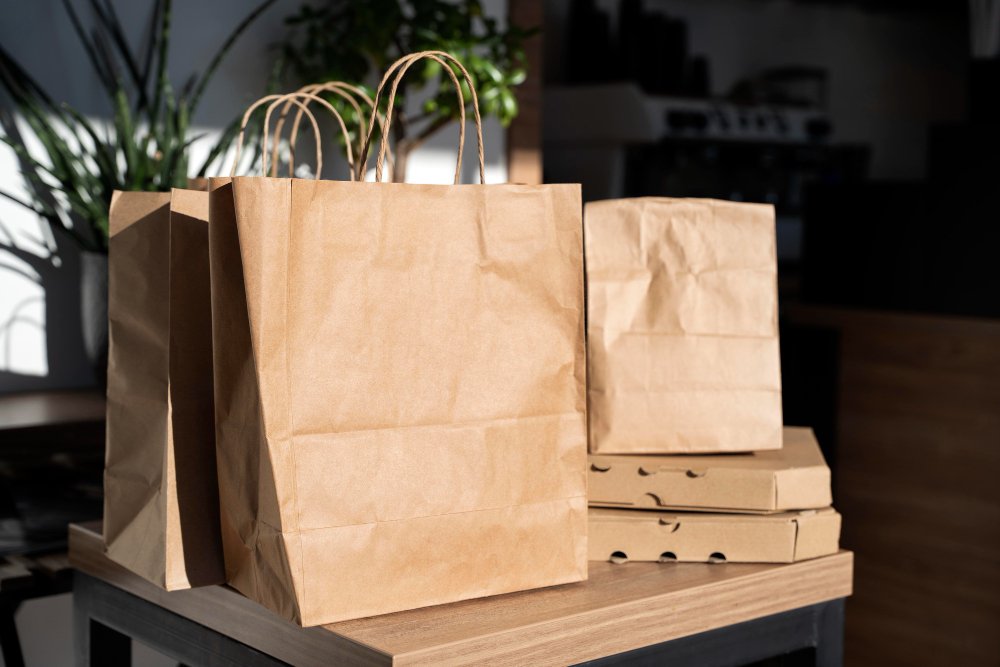As the conversation around eco-friendly packaging grows louder, many people assume paper bags for wet waste are the greener alternative to plastic. On the surface, it seems like a smart choice—paper is natural, recyclable, and biodegradable. But when it comes to handling wet waste disposal, paper bags are not the most practical or sustainable option.
In this blog, we’ll break down the disadvantages of paper bags, explore the challenges of using them for wet waste, and highlight smarter alternatives like compostable wet waste bags and biodegradable carry bags.
Why People Choose Paper Bags
Paper bags have become a symbol of eco-consciousness. Retailers, restaurants, and even households use them as a replacement for single-use plastic bags. They are lightweight, recyclable, and decompose naturally under the right conditions.
But the reality is different when paper bags meet wet waste management solutions. From durability issues to higher resource consumption, their drawbacks outweigh the benefits in many cases.
The Limitations of Paper Bags for Wet Waste
Paper bags are not designed for kitchen waste disposal or other forms of wet waste. Here’s why:
- Weak Durability
Unlike biodegradable garbage bags, paper bags tear easily when they come into contact with moisture. Liquids, food scraps, or oily residues quickly weaken their structure, making them unreliable for daily wet waste handling. - Short Usage Life
Paper loses its strength when wet. This means you can’t reuse paper bags for wet waste multiple times, unlike sturdy compostable bags that can last throughout the disposal process. - High Resource Consumption
Producing paper bags requires cutting down trees, consuming large amounts of water, and using energy-intensive processes. In fact, the environmental cost of manufacturing paper bags often exceeds that of biodegradable plastic bags made from renewable resources. - Not Always Compostable at Home
While paper is technically compostable, bags that are coated, laminated, or printed with ink may not decompose safely. This makes them less effective as part of a responsible wet waste management strategy.
Smarter Alternatives to Paper Bags
If paper isn’t the best solution, what works better for wet waste? Here are some proven alternatives:
- Compostable Wet Waste Bags: Made from plant-based materials like corn starch, these bags are strong enough for liquids and organic scraps. They break down naturally as part of the composting process.
- Biodegradable Carry Bags: Lightweight, durable, and made from sustainable raw materials, they are more practical than paper for daily wet waste handling.
- Biodegradable Garbage Bags: Specifically designed for household and commercial waste, these bags resist tearing, making them ideal for kitchen waste disposal.
- Reusable Containers or Bins: In urban households, reusables combined with compostable bags can create a complete wet waste disposal solution.
The Role of Sustainable Packaging in Waste Management
Businesses and households must think beyond paper when choosing packaging for waste. True sustainability means using products that are:
- Durable enough to handle moisture and organic scraps
- Certified compostable, ensuring safe breakdown
- Low impact in terms of resource consumption during production
- Practical for everyday use in households and retail spaces
This is where eco friendly alternatives to paper bags like compostable and biodegradable options shine. They fit into modern sustainable waste management systems and align with government regulations encouraging the shift away from single-use plastics.
Why Retailers Should Rethink Paper Bags for Wet Waste
For businesses, offering paper bags for wet waste might look environmentally responsible, but it often leads to customer dissatisfaction. Shoppers carrying food items or groceries risk torn bags, leakage, and inconvenience.
Instead, collaborating with biodegradable bags manufacturers ensures access to reliable, durable, and certified options. Whether it’s compostable carry bags for food outlets or biodegradable packaging for retail, these solutions deliver both performance and eco-friendliness.
Final Thoughts
While paper bags may seem like an eco-friendly option, they are not the best solution for wet waste disposal. Their limited durability, short lifespan, and high production footprint make them less sustainable than other alternatives.For households and businesses, the smarter choice lies in compostable wet waste bags, biodegradable garbage bags, and eco friendly packaging options that combine strength with sustainability. By making these choices, we not only reduce waste but also contribute to a cleaner, greener future.


